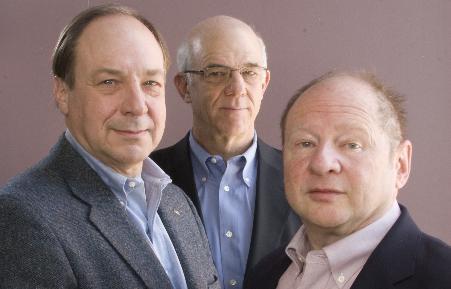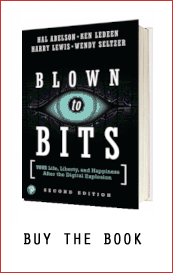The Authors

Harry Lewis (on the left) , former Dean of Harvard College, is Gordon McKay Professor of Computer Science at Harvard. He is the author of Excellence Without a Soul: Does Liberal Education Have a Future? You can learn more about Harry and his work at his web page. You can reach him at lewis “at” harvard “dot” edu.
Ken Ledeen (in the middle), is the Chairman and Chief Executive Officer at Nevo Technologies, Inc., a software development and information technology consulting firm located in Cambridge, Massachusetts. He has served on the boards of numerous public and private technology companies. You can learn more about Ken and his work at his web page. You can reach him at kledeen@nevo.com
Hal Abelson (on the right) is the Class of 1922 Professor of Electrical Engineering and Computer Science at MIT and and IEEE Fellow. He has helped drive innovative educational technology initiatives such as MIT OpenCourseWare, cofounded Creative Commons and Public Knowledge, and was founding director of the Free Software Foundation. You can learn more about Hal and his work at his web page. You can reach him at hal “at” mit “dot” edu.
Wendy Seltzer (not pictured), is Strategy Lead and Counsel to the World Wide Web Consortium (W3C) at MIT, improving the Web’s security, availability, and interoperability through standards. As a Fellow with Harvard’s Berkman Klein Center for Internet & Society, Wendy founded the Lumen Project (formerly Chilling Effects Clearinghouse), the web’s pioneering transparency report to measure the impact of legal takedown demands online. She seeks to improve technology policy in support of user-driven innovation and secure communication. You can see more of Wendy’s work at her web page.
Together, the authors teach Quantitative Reasoning 48, BITS, an innovative Harvard course on information for non-technical and non-mathematically oriented students.

